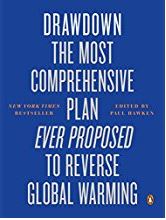The third principle of behaviour of Eco-humanity is to recognise the integrated world of nature, respect how it supports our lives and preserve its full diversity.
Humans are genetically adapted to be hunter-gatherers. Our instincts are honed to be killers of animals and harvesters of plants. When humans first left Africa and colonised the Five Continents we initiated a major change in biodiversity. Many large mammal species were wiped out in America, and Australia; mastodons, giant sloths, giant kangaroos, sabre tooth cats and many others are only known by their skeletal remains. As we colonised the islands in the Indian and Pacific Oceans many species of bird were defenceless and disappeared, including the famous Dodo. As little as 5000 years ago Mammoths existed in Russia, before humans killed the last of them.
When we learned to domesticate animals and cultivate plants our destruction of nature stepped up a gear. Trees were chopped down and whole environments disappeared. The landscape of Britain that we love today is completely unnatural. If left to its own devices, nature would cover most of Britain with woodland. Wolves and lynxes would hunt wild deer in the forest. Beavers would dam rivers. Now, in the ‘countryside’ farmers plough the land and sheep graze the hills ensuring there is no natural growth in vegetation.
As a species we have become too successful. The same process of elimination of the natural world is happening right across the globe. Forests are disappearing at an alarming rate. Many species are losing their natural habitat; lemurs in Madagascar, orang-utans in Borneo and jaguars in South America are some of the many species threatened. Wild life is becoming restricted to small nature reserves. Even these are threatened; rhinos, lions and elephants are being shot by poachers. The reserves are being encroached on by farmers and pastoralists. We are eliminating plant and animal diversity at an alarming rate.
Does it matter? After all we have learnt to love the British countryside as it is without wolves, forests and aurochs. There are many arguments for maintaining the diversity of nature. Nature provides an almost infinite source of compounds that could be tested for medicinal, chemical or food usage. The workings of nature provide inspiration for physicists and chemists to develop new machines and drugs. The workings of nature provide natural defences against floods, storms and insect infestations. However the principal reason we should preserve nature is that it is so wonderful. Since the Enlightenment in the eighteenth century we have learned to study how the natural world works. The more we learn the more amazing it becomes. Recently the films made by naturalists, such as David Attenborough, have inspired us all. We absolutely need to preserve this wonder for our children to enjoy.
 With extreme temperatures being reported across the world, this could be the year when the public at large finally believe that climate change is happening. Belief is one thing, doing something about it is another. The first reaction seems to be to cope rather than to address the fundamental problem. In the UK we are talking of installing air conditioning into our homes and workplaces. This will only make matters worse.
With extreme temperatures being reported across the world, this could be the year when the public at large finally believe that climate change is happening. Belief is one thing, doing something about it is another. The first reaction seems to be to cope rather than to address the fundamental problem. In the UK we are talking of installing air conditioning into our homes and workplaces. This will only make matters worse.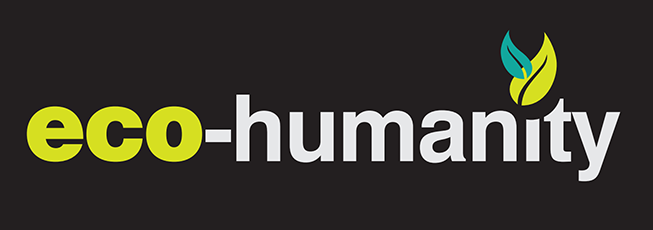
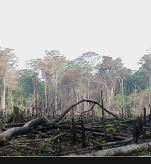 According to the Rainforest Partnership
According to the Rainforest Partnership 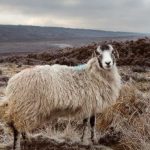
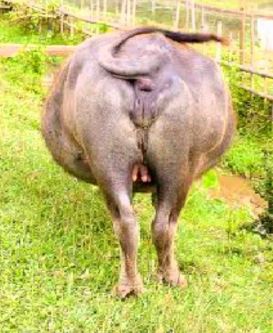 Our love of eating meat has long cultural traditions. The initial evolutionary success of the human species was based on our ability to catch and eat large mammals. We have since learnt to domesticate cattle, sheep, pigs, chicken and many other species purely so we can eat their flesh. But the chickens are coming home to roost. Livestock farming now accounts for 15% of global greenhouse gas emissions and according to the latest UN report, this number is set to increase 75% by 2050. This problem can’t be solved by just switching to green energy sources. Cattle and the other ruminants emit methane, a much more potent source of greenhouse gas than carbon dioxide; over a 5-year period methane traps up to 100 times more heat in the atmosphere.
Our love of eating meat has long cultural traditions. The initial evolutionary success of the human species was based on our ability to catch and eat large mammals. We have since learnt to domesticate cattle, sheep, pigs, chicken and many other species purely so we can eat their flesh. But the chickens are coming home to roost. Livestock farming now accounts for 15% of global greenhouse gas emissions and according to the latest UN report, this number is set to increase 75% by 2050. This problem can’t be solved by just switching to green energy sources. Cattle and the other ruminants emit methane, a much more potent source of greenhouse gas than carbon dioxide; over a 5-year period methane traps up to 100 times more heat in the atmosphere.